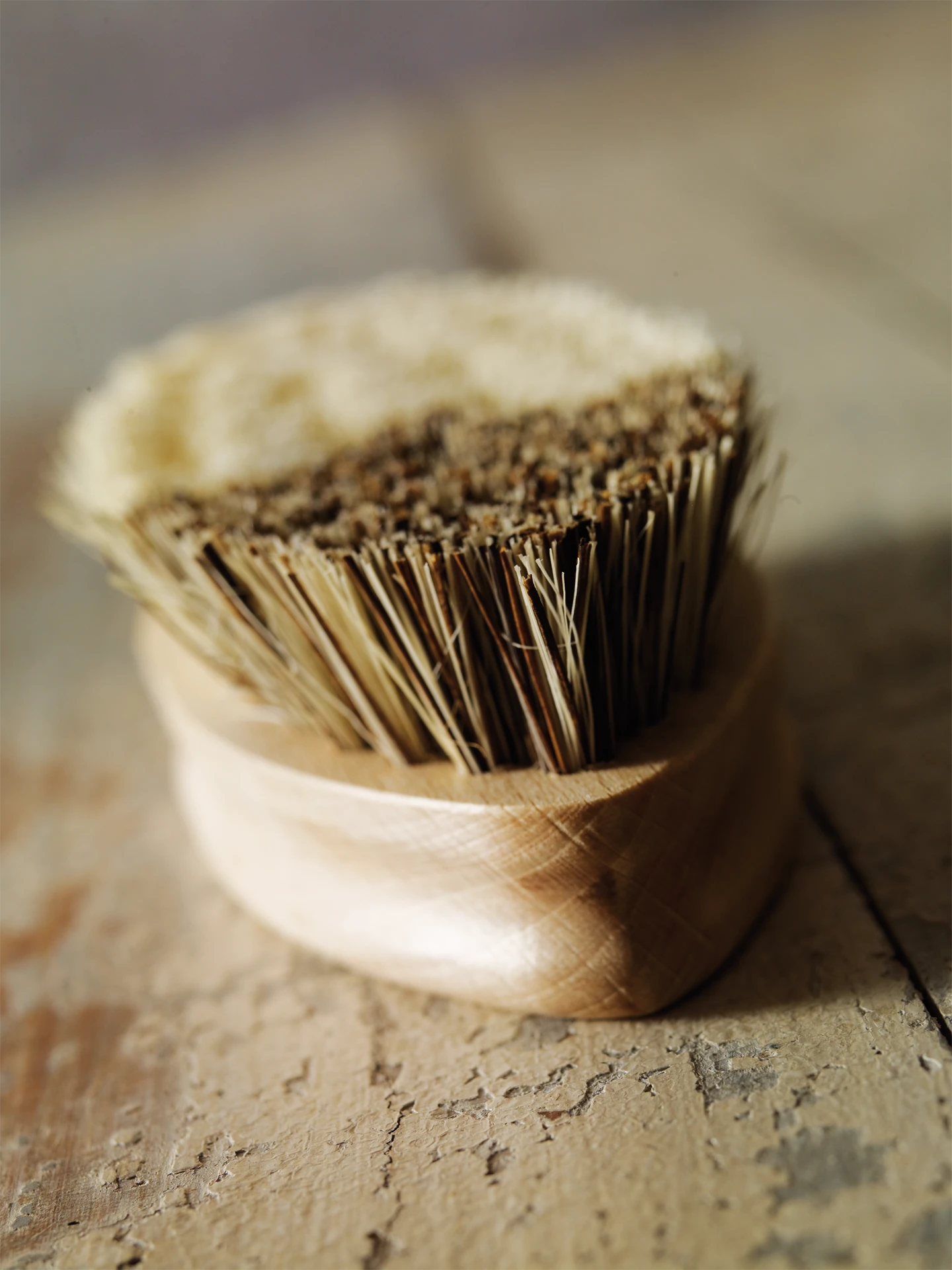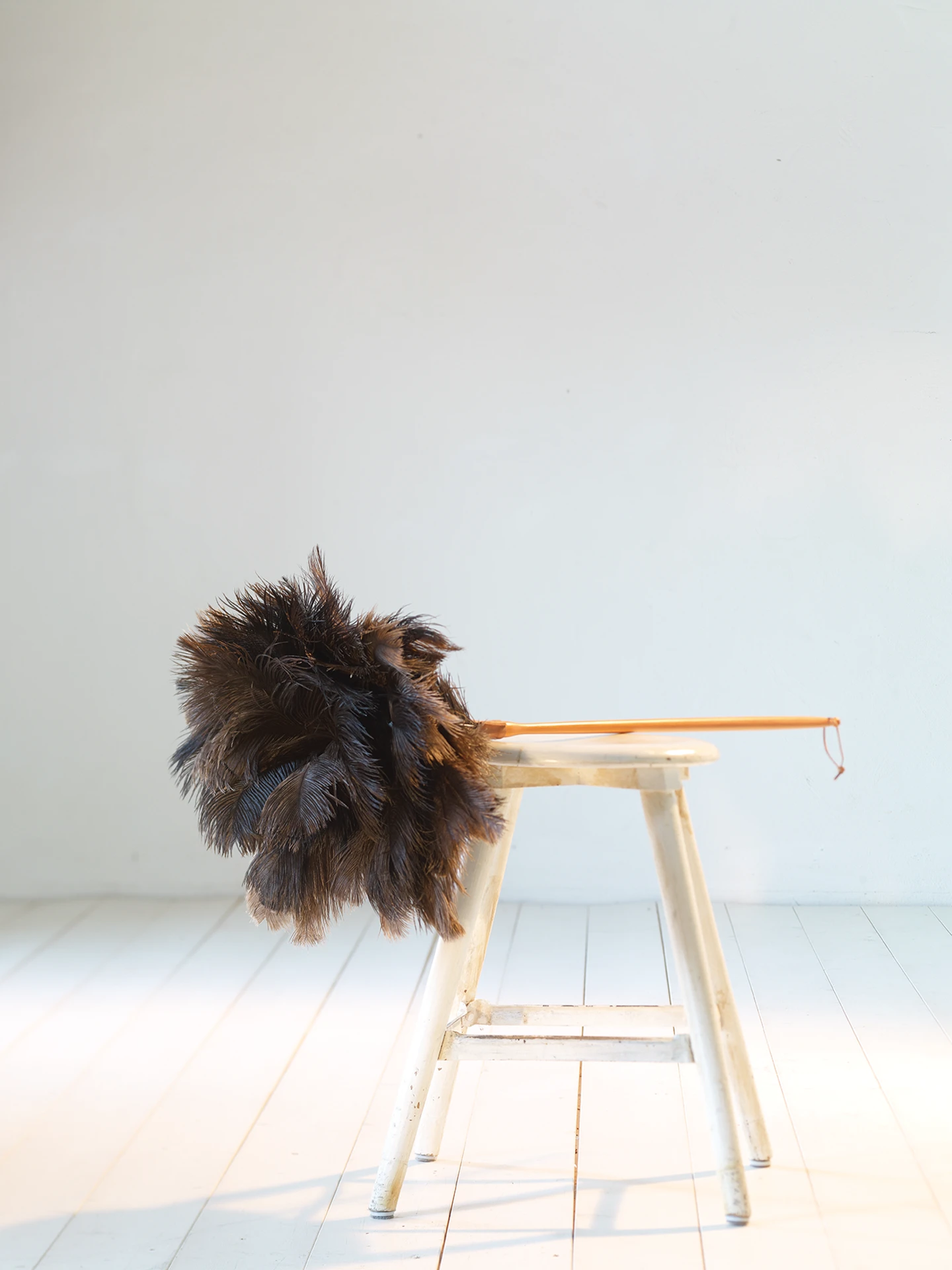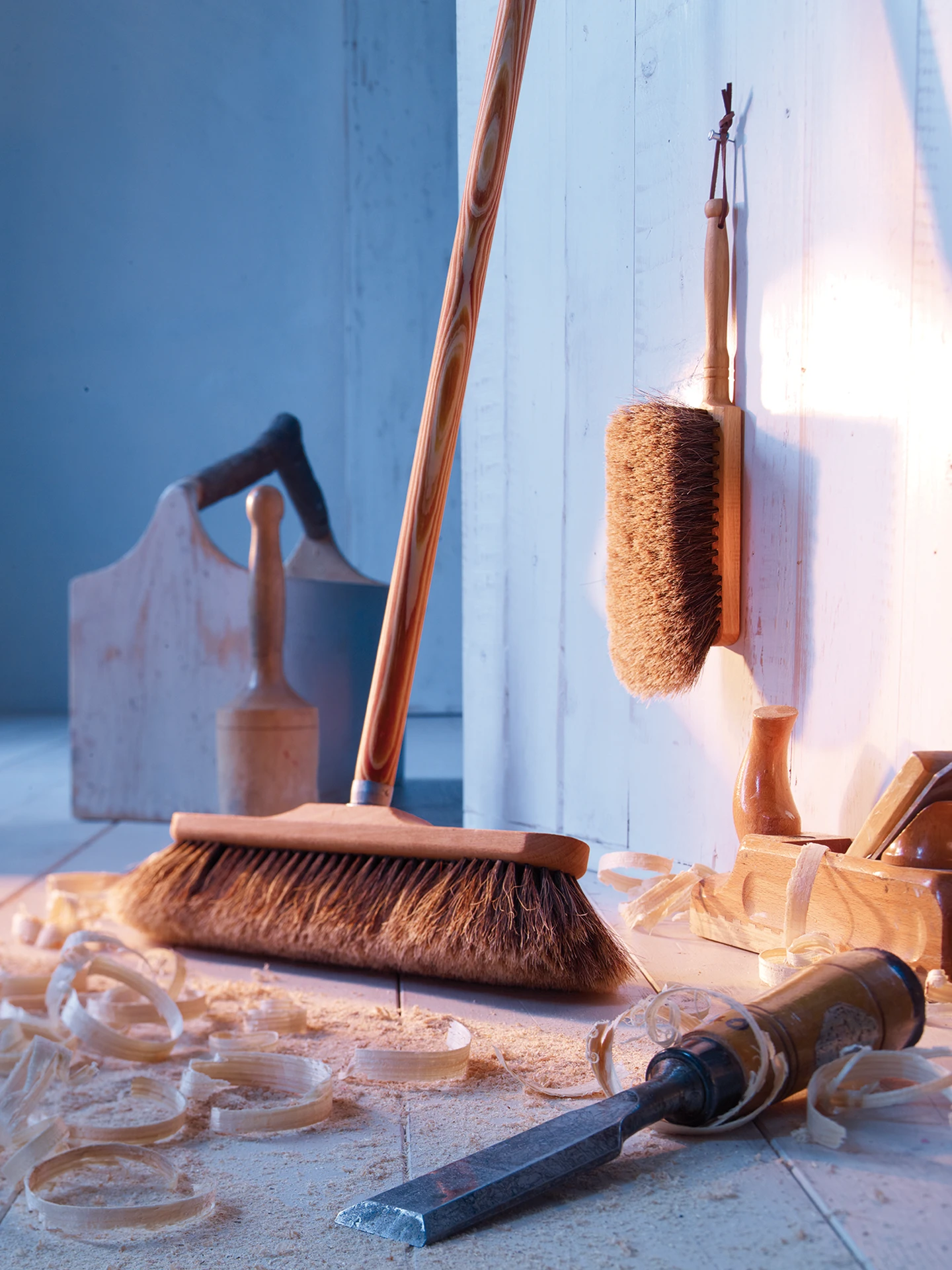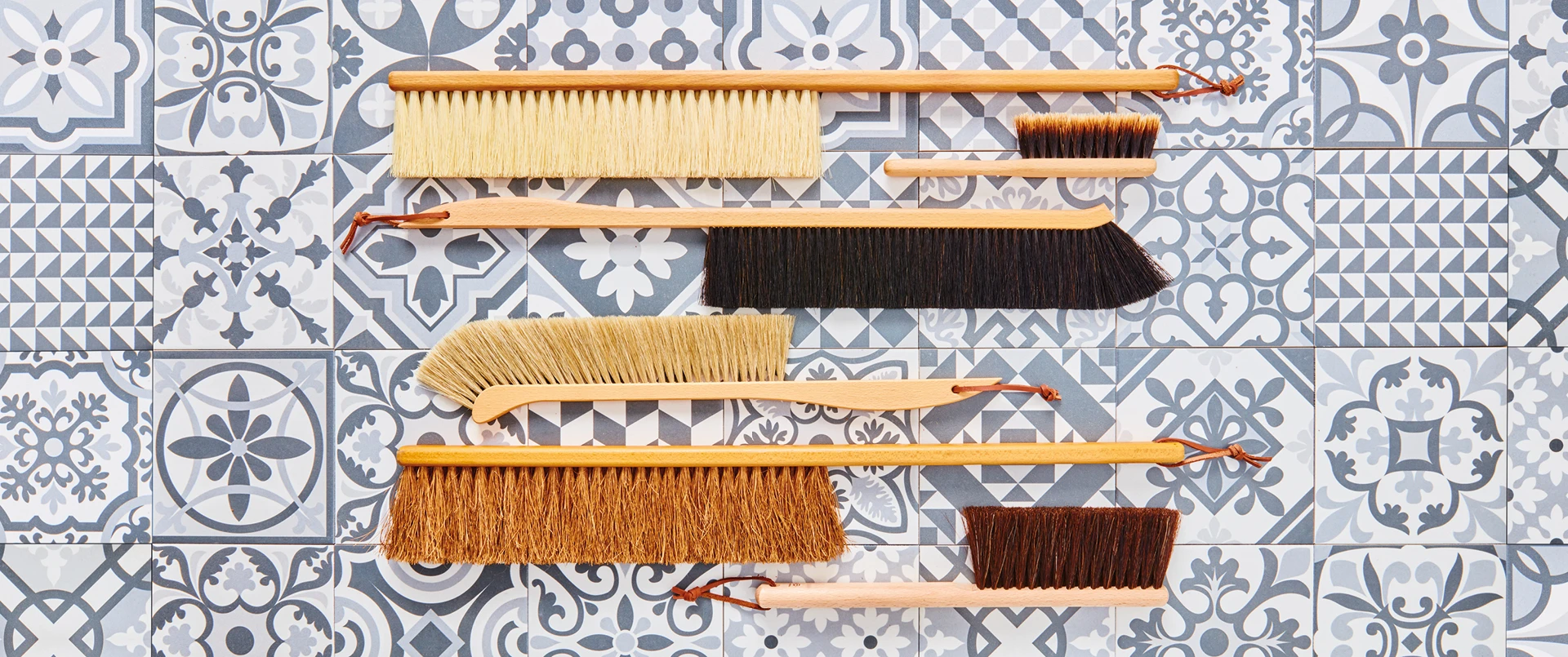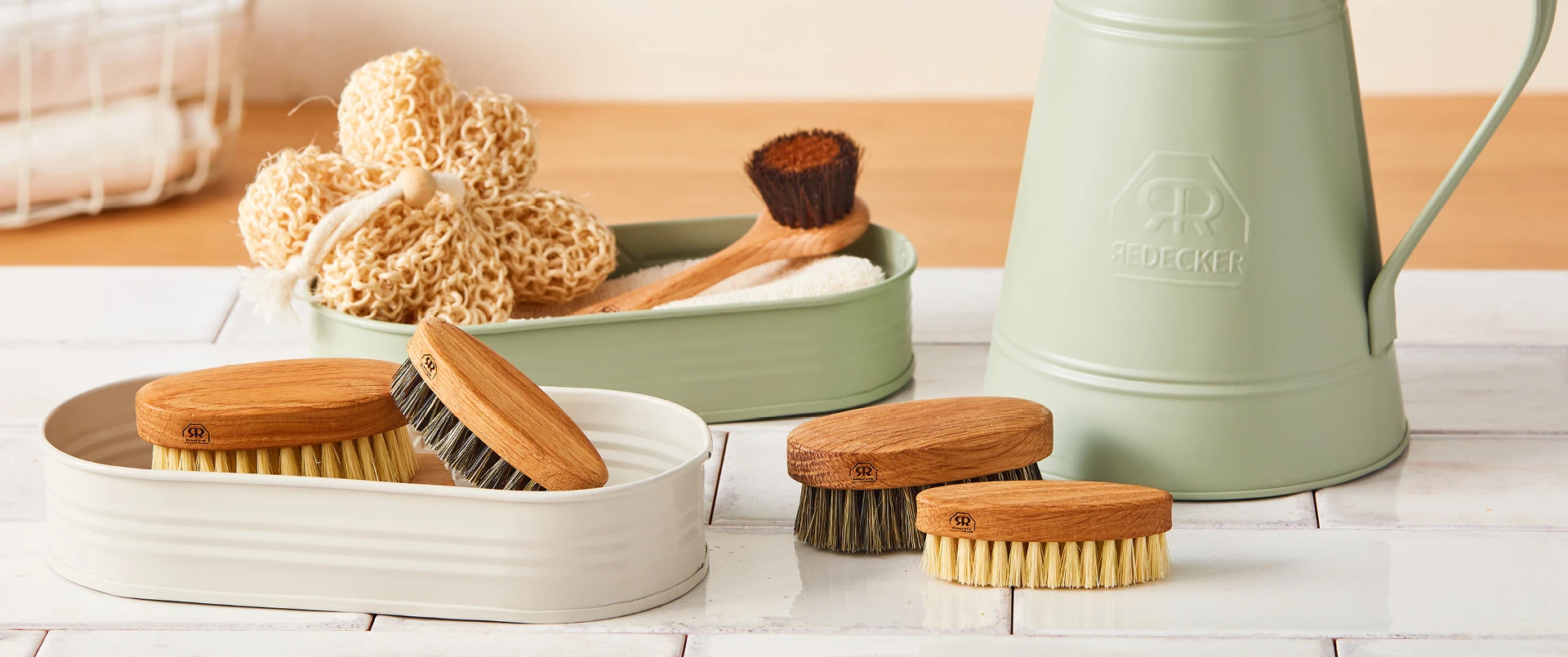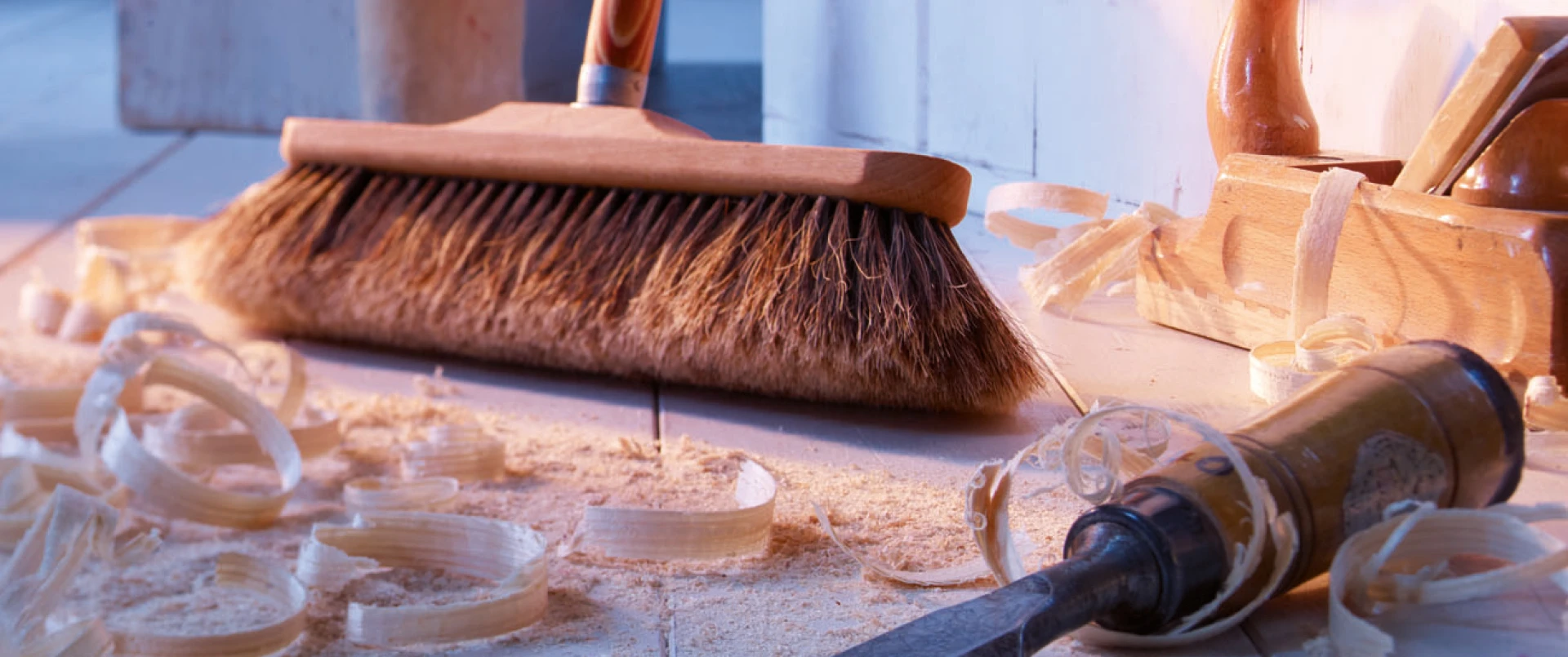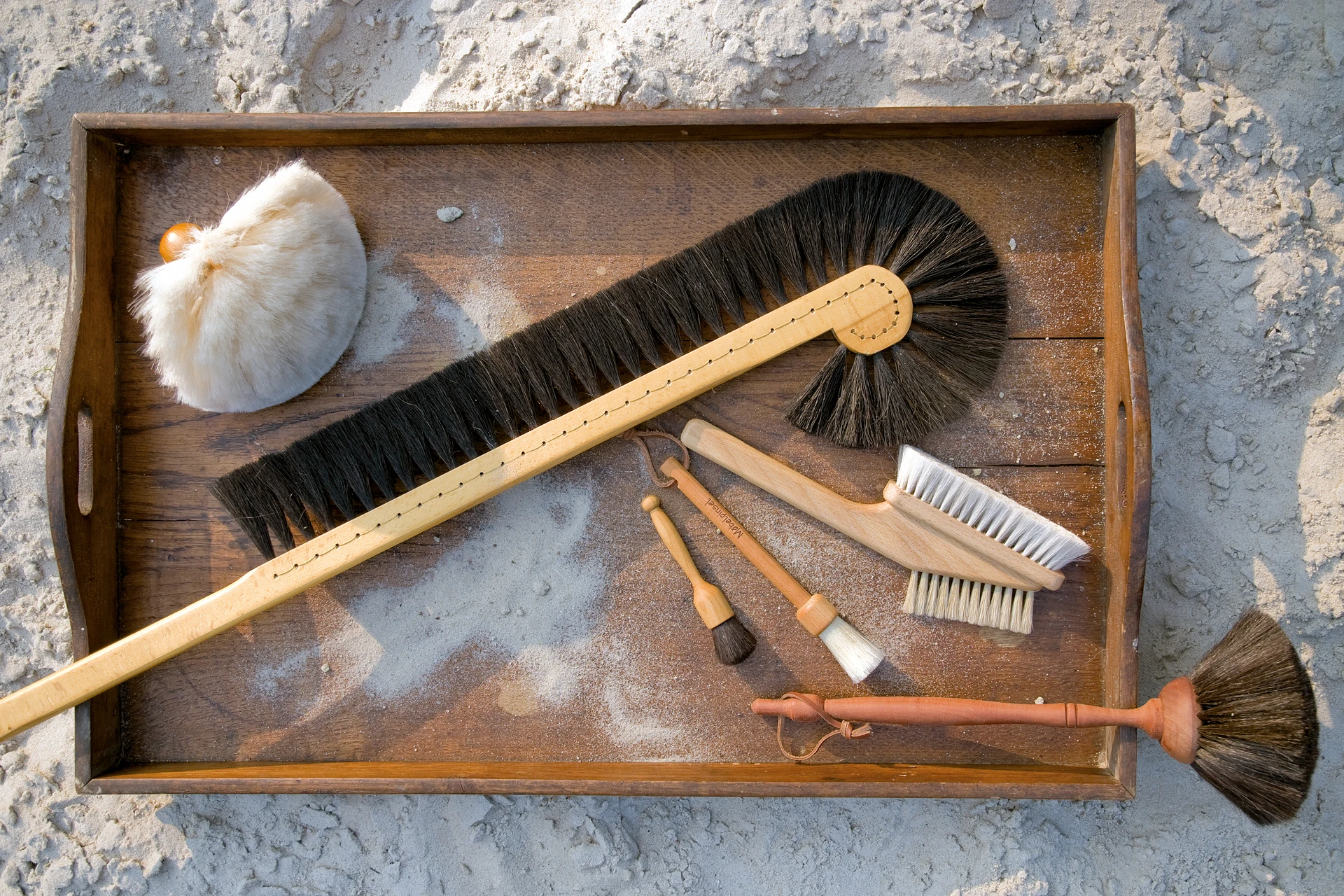
Brushes have to cope with many different tasks and are designed and produced by us so that they can do their job perfectly. We use a wide variety of materials from different parts of the world - simply because they are sometimes only available in one place in the world.
We always work with the highest possible sustainability standards: our wood comes from sustainable forestry that we have personally checked, even if it does not bear the FSC seal. We take the trimmings (that's what we call "brushing") and their origin just as seriously and always ensure that they are sourced in a socially responsible and sustainable manner. There are often no official seals and certificates for this because there simply aren't any for our special materials, for example. We know all of our material suppliers very well, maintain personal contact with them and know how they work.
We are often asked questions about our products that cannot be answered uniformly. We would like to provide a brief overview here:
Do you have vegan brushes?
The bristles and fibers for our brushes are obtained from either plants or animals: These range from arenga to bassine and from horsehair to wild boar. So if you are looking for vegan brushes and brooms, you will find them in our plant-based fibers, of which there are many different types - you can find an overview in our material science. Animal bristles and hair (only they are called that, otherwise we speak of fibers) come either from horses (horsehair), goats, pigs or wild boar, and for shaving brushes it can also be badger hair. And then, of course, there are also ostrich feathers ...
Do the animals have to die for brush production?
No animal dies so that we can make a brush. But of course we use animal materials as a by-product of, for example, agricultural animal husbandry and food production: this applies, for example, to horsehair (which is always mane or tail hair) and pig bristles. Goats are usually shorn and their hair is then used for our dust brushes. Most of the feathers for our ostrich dusters come from ostrich farming for ostrich meat.
Why do you send me my hairbrush in a plastic bag and not unpacked?
Hygiene products - and these are very many brushes - must be packaged in plastic bags for reasons of hygiene. Unfortunately, this cannot be a paper bag or a permeable cardboard box. For the same reason, personal care brushes and many others can also be returned after only one use or not at all.
Are your brushes plastic-free?
In most cases, our brushes are plastic-free, but sometimes this is not possible. Vegan shaving brushes, for example, are almost always equipped with nylon because vegetable fibers are not so suitable for the permanent moisture to which they are exposed. The bristles or metal pins of a hairbrush are usually embedded in cushions, for which either natural rubber or plastic must be used for hygienic reasons. A classic simple dishwashing brush, broom or cleaning brush, however, is almost always made without plastic and consists of the brush body (wood, usually oiled or untreated), the bristles and screws or wood glue.
